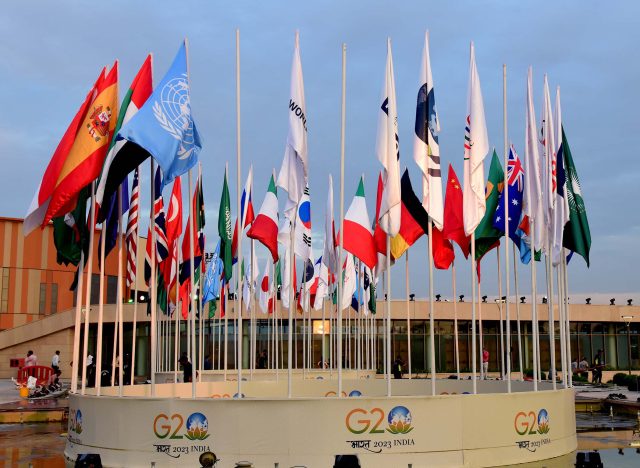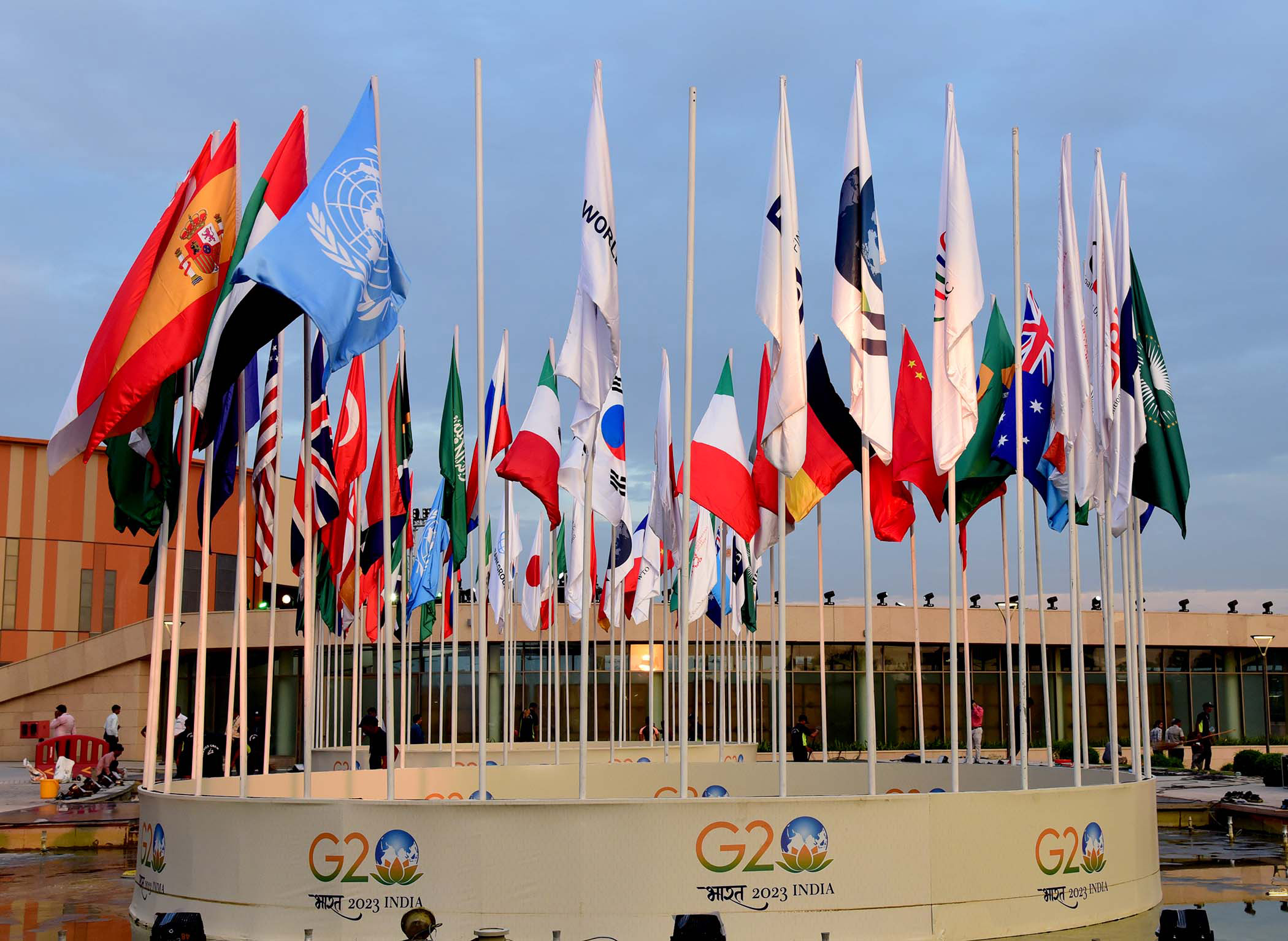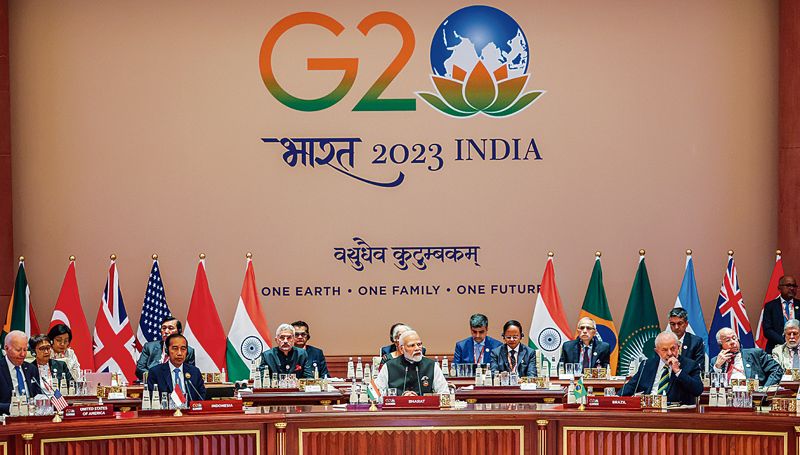
Between Provocations and Invitations: What Happens at the Meeting of the “Greats”
Everyone is familiar with the G7 (formerly G8 before Russia was excluded), which is the gathering of the seven major global economic and political powers. These seven countries are the United States, Canada, the United Kingdom, France, Germany, Italy, and Japan, representing the seven most developed economies and mature democracies in the world.

Over time, the G20 was also established, an organization aimed at bringing together the 20 largest economies and facilitating dialogue between developed and developing countries (later, the G20 also served to address the fracture with BRICS, the countries advocating for a “de-dollarized” economic system).
The 2023 G20 summit comes at a particularly complex moment in international geopolitics, from the Russia-Ukraine war to the expansion of BRICS to include other highly significant countries on the geopolitical stage, such as Argentina (which will elect its new President in the fall), Saudi Arabia, the United Arab Emirates, and major African countries like Egypt and Ethiopia.
India hosted the event and immediately stirred controversy by provoking the United Kingdom. Prime Minister Narendra Modi, a representative of the Indian People’s Party, a right-wing force, decided to use the name “Bharat” instead of the traditional “India.” Bharat was the ancient name of India (still in use in Hindi) before English colonizers decided to rename it as it is known worldwide today. This was a significant provocation, especially aimed at Rishi Sunak, the British Prime Minister of Indian descent who himself practices Hinduism.
The political composition of the summit reflects a predominance of left-wing ideologies worldwide. However, it’s important to distinguish between the more radical and populist left, represented by countries like China and Brazil, and the more liberal and social democratic left, represented by Germany and the United States. Nevertheless, right-wing Countries appear somewhat isolated. Excluding Russia and Turkey, which, despite claiming to be right-wing, are certainly not aligned with Western plans, and also excluding India, which has shown some discontent with the West, we have South Korea, Japan, Italy, and the United Kingdom. The latter might change its political orientation in 2024, given the 18-point difference between the Labour Party and the Conservatives. However, this is not enough to make decisive moves against China.
 Putin did not attend the summit, mainly due to fears of being arrested on Indian soil, but Minister Lavrov did. When extending the invitation to the 2024 G20 summit in Rio de Janeiro, Brazilian President Lula cordially invited Putin, publicly stating that the Russian President would not be arrested during the event. This statement, later retracted with the claim that the Brazilian judiciary would decide on the matter, has nevertheless created a significant rift with the United States, which is pursuing a tough policy towards Russia, partly in an anti-Chinese context.
Putin did not attend the summit, mainly due to fears of being arrested on Indian soil, but Minister Lavrov did. When extending the invitation to the 2024 G20 summit in Rio de Janeiro, Brazilian President Lula cordially invited Putin, publicly stating that the Russian President would not be arrested during the event. This statement, later retracted with the claim that the Brazilian judiciary would decide on the matter, has nevertheless created a significant rift with the United States, which is pursuing a tough policy towards Russia, partly in an anti-Chinese context.
Movements within the G20 are tumultuous and challenging to decipher. There is a sense that many countries are acting independently. For example, India criticizes the West but distances itself from China when possible. Turkey, despite being a NATO member, pursues a foreign policy of “two ovens,” seeking dialogue with Moscow to gain more influence in the Mediterranean. It’s also worth noting that with the new BRICS members, the vast majority of the world’s mineral and oil reserves are aligned in the opposite direction to the United States. The entry of Iran into the alternative alliance to the G7 is a clear sign of its desire to break ties with the West.
The 2019 G20 summit, the last with President Donald Trump in office, featured leaders like Shinzo Abe, Jair Bolsonaro, Mauricio Macri, Angela Merkel, and Theresa May. This political group no longer exists, and a Western “security belt” needs to be rebuilt, starting from Europe.



 Subscribe
Subscribe